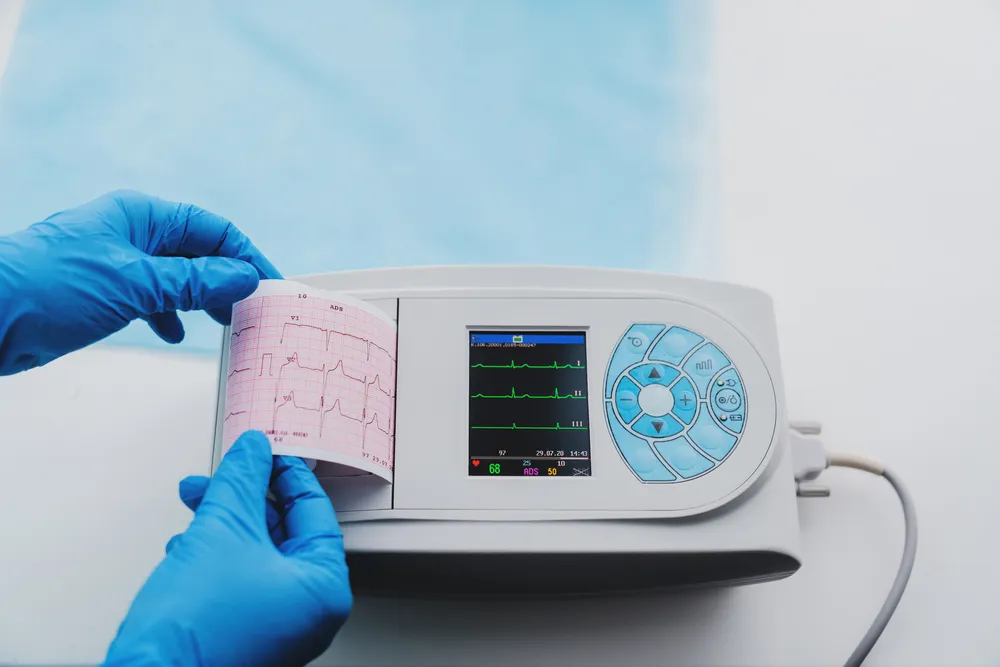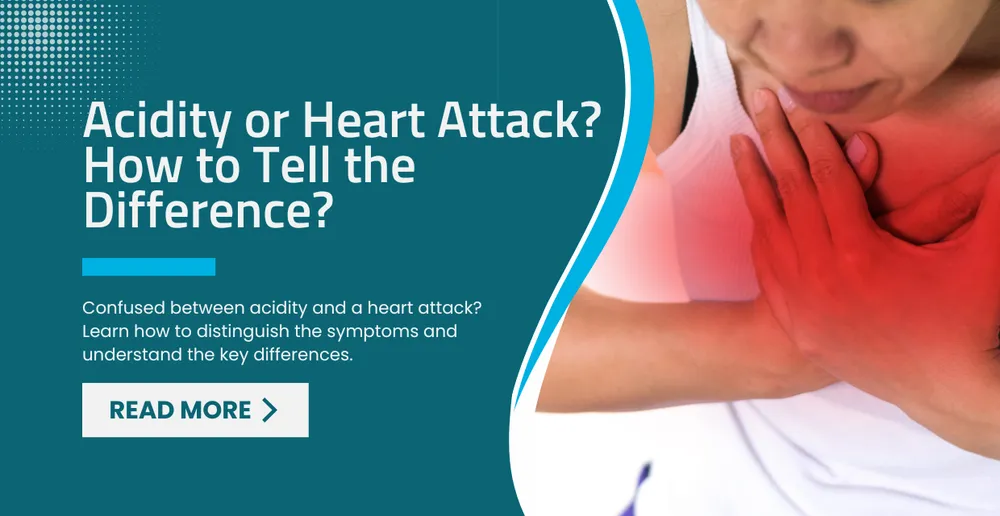It's late at night, and you suddenly feel a burning sensation in your chest. Is it just a case of acidity or could it be something more serious, like a heart attack? The truth is, the symptoms for both conditions can be eerily similar and often cause panic.
But before you start spiraling into a full-blown panic attack, it's important to understand the differences between acidity and heart attack symptoms. In this article, we'll explore what sets these two conditions apart so you can recognize them early on and get the appropriate treatment. So get ready for an eye-opening read that may end up saving your life!
Acidity vs Heart Attack
Acidity occurs when stomach acid flows back into the food pipe, causing a burning sensation in the chest and throat. This can be triggered by certain foods, beverages, or lying down after a meal.
On the other hand, a heart attack occurs when the blood flow to the heart is blocked, which can cause chest pain or discomfort. This pain may feel like a squeezing or pressure sensation in the chest, and may also be accompanied by other symptoms such as shortness of breath, dizziness, or nausea.
Although both acidity and heart attack can cause chest pain, there are some key differences.
Symptoms of Acidity

Some of the most common symptoms include:
Heartburn: This is a burning sensation that typically starts in the chest and can move up to the throat. It may be worse after eating, especially if you lie down or bend over.
Vomiting: This is when stomach acid or food comes back up into the throat or mouth. It may cause a sour or bitter taste in the mouth.
Difficulty swallowing: Acidity can cause narrowing of the food pipe, making it difficult to swallow.
Sore throat: The acid from the stomach can irritate the throat, causing a sore throat.
Chronic cough: Acidity can trigger a chronic cough, especially at night.
Diagnosis and Treatment Options for Acidity

If you experience symptoms of a heart attack, it's important to seek medical attention right away. Your doctor may use tools such as Endoscopy to diagnose your condition and develop a treatment plan.
Treatment options for acidity may include medications to reduce acid production, lifestyle changes such as avoiding trigger foods and losing weight, and in some cases, surgery to strengthen the lower oesophagal sphincter.
Symptoms of Heart Attack
One of the most common symptoms of a heart attack is chest pressure or tightness. This feeling may be described as a squeezing, heaviness, or fullness in the chest. It can last for several minutes or come and go. In some cases, chest pain may be mistaken for indigestion or heartburn.
Another symptom of a heart attack is shortness of breath. This can occur before or during chest pain and may be accompanied by a feeling of being out of breath or difficulty breathing deeply.
Nausea or vomiting is another symptom that some people may experience during a heart attack. This can occur due to the stress on the body or the release of certain hormones during a heart attack.
So, the symptoms that differentiate heart attack from acidity are
Heart attack pain usually feels like a pressure or squeezing sensation in the chest, which can also spread to the arms, neck, jaw, or back. On the other hand, acidity pain is typically felt in the upper part of the stomach or lower chest and may be described as a burning or discomforting sensation.
Another factor is that heart attack symptoms may be accompanied by sweating, lightheadedness, and shortness of breath, whereas acidity symptoms usually don't include these symptoms.
Diagnosis and Treatment Options for Heart Attack
If you experience symptoms of a heart attack, it's important to seek medical attention right away. Your doctor may use tools such as ECG to diagnose your condition and develop a treatment plan.
Treatment may involve medications to reduce blood clotting, restore blood flow to the heart, and reduce pain and inflammation. Lifestyle changes such as quitting smoking, exercising regularly, and maintaining a healthy diet can also help reduce your risk of heart disease.
Whether you're dealing with acidity or a heart attack, there are effective treatment options available to help you manage your symptoms and improve your overall health. Don't hesitate to seek medical attention if you're experiencing symptoms – it could make all the difference in your recovery.
Get accurate diagnoses at LifeCare Hospitals today. We offer diagnostic procedures such as endoscopy and ECG to ensure accurate diagnosis and provide personalized treatment options.
Don't ignore your symptoms or delay seeking medical attention. Contact LifeCare Hospitals today for a consultation and get the right diagnosis and treatment for your condition. Our team is ready to help you get back to living a healthy and active life.



